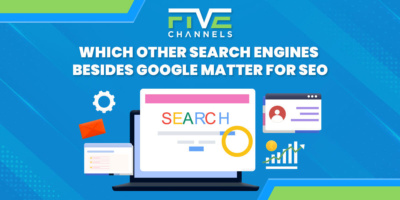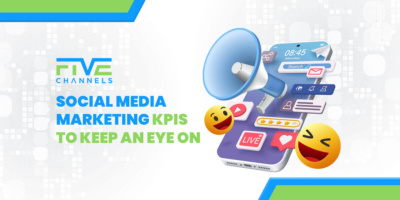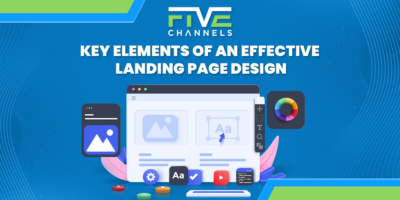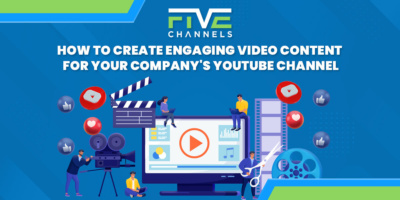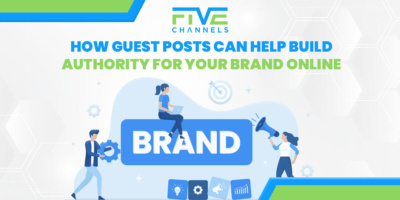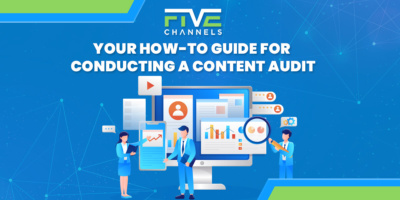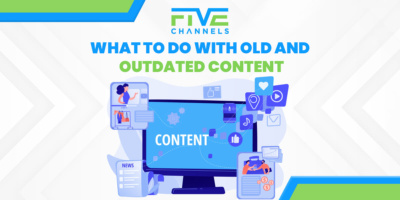If you’ve ever wondered how Google makes money, the answer is through ads. Google AdWords came online just two years after the search engine made its debut.
Fast-forward a couple decades, and Google saw its ad revenue rise by 20 percent in the last quarter of 2018. It raked in a whopping $32.6 billion in ad revenue for three months alone.
Of course, Google isn’t the only one making money with the Ads program. Advertisers often see a significant return on their investment in the program.
The right Google AdWords training plays a big role in that success. If you’re new to Google Ads or wondering how to improve your results, this guide is for you.

Understanding Google Ads
The first thing you should do to improve your Google Ads results is to make sure you have a solid understanding of how the program works.
So, what are some Google AdWords basics?
Google Ads is a pay-per-click advertising program. Anyone can sign up to use it.
To run an ad, you don’t buy ad space in the traditional manner. Instead, you’ll bid on placement using Google’s automated network.
To place a bid, you’ll create a new Google Ads campaign or ad group. To set up a campaign, you’ll define your target audience, your budget, and keywords you want to bid on.
You’ll also define other parameters, such as when you want to run your ads. Finally, you’ll add the ad itself, which can include copy and images.
With all this information in hand, you can then start bidding on available ad placements.
It’s Not About the Highest Bid
One of the key things to understand about Google Ads is that the highest dollar bid doesn’t necessarily win the auction. Instead, Google determines the winner by the quality of the ad.
Google uses a few different criteria to determine the quality of an ad. These factors include:
– Quality of the ad itself, such as good grammar in text
– The reputation of the advertiser
– Relevancy of the ad to keywords
– Bid
Google then compares your ad against others competing for the placement. If your ad has the highest marks, then you’ll win the bid. Your ad will then be displayed to the user.
It’s important to note that Google places ads on a case-by-case basis. These transactions happen in milliseconds, allowing Google to serve the most relevant ads to each search user.
You Pay-Per-Click
There’s one other thing to keep in mind, and that’s the pricing structure of Google Ads. You only pay when someone clicks your ad.
You may win the bid, but if the user doesn’t click your ad, you don’t pay. Your ad may reach many people, but it may take many impressions to reach your budget. That’s because the click-through rate may be low.
A high click-through rate means you spend your budget faster, but it may actually be a good thing. Ads with high CTRs are likely finding people who are actually interested in what you have to offer. These people are much more likely to convert to sales.
There are times when a high CTR isn’t an indicator of campaign effectiveness though. PPC fraud is on the rise, so you must take precautions to protect yourself against it.
Google AdWords Training for Performance
Now you have a solid foundation on which to build your next ad campaign. If you’ve tried learning how to do Google Ads before, and not achieved the results you wanted, you may have wondered why Ads wasn’t working for you. If this is your first campaign, you might be hoping to avoid some common missteps so you can ensure success.
Although Google Ads is straight-forward in theory, there are quite a few moving pieces. To create a successful campaign, you’ll want to look at the following factors:
– The quality of your ad
– Audience demographics
– Keyword research and targeting
It’s important to look at each of these factors as you begin planning your campaign.
Ad Quality is Key
Probably the biggest mistake people make when they learn how to use Google Ads is forgetting about the quality of their ad. It’s easy to get caught up in competitive bidding or keyword research.
The quality of your ad is still going to be one of biggest factors in its success, so take some time to craft a good one. We already mentioned that Google favors good spelling and grammar in text ads, so do search engine users.
Compelling copy is also important. The ad should make it clear what you’re selling, as well as why the user should click.
If you’re running a text ad, then you may not think you need to worry about visuals. Appearance and formatting are still important.
For ads with images or even video, visuals are even more important. A bright, high-quality picture will almost always get the click over a dark, blurry, or pixelated image.
Relevancy is another factor in determining quality. Misleading copy or vague “clickbait” is likely to get your ad rated lower on the quality scale. Be clear about what you’re offering and how it relates to the user’s search.
Who is Clicking?
The next thing to think about is who you’re targeting with your ad. We mentioned that “compelling copy” is key. What someone finds “compelling” could be based on many different factors:
– Age
– Gender
– Geographic location
– Occupation
– Education level
– Marital and family status
– Income bracket
– Hobbies and interest
For example, someone who is interested in video games is likely going to be intrigued by an ad relating to this interest. Someone who doesn’t like video games, on the other hand, will be less compelled by an ad that references them.
Different gamer demographics have different likes though. Parents who are looking for family-friendly video games aren’t going to find an ad for a first-person shooter very compelling. That same game may appeal to a different set of gamers though.
As you can see, determining who is in your target audience is key to your ad’s success. If you feel that “everyone” or “anyone” is interested in your product or service, your ad may not be very appealing.
It’s better to do some research and find target audiences within your existing customer base. You may also have groups you want to target, even though they’re not buying right now.
Once you have this information, you can develop ads that speak to each different target group. In this way, you’ll create high-quality ads that compel people to click.
Unlocking Keywords
Finally, you need to consider the keywords you want to target with your ads. Keywords are the terms and phrases people use when they want to look something up on Google.
Keywords help establish the relevancy of your ad to the user’s search. If someone searches for “pizzerias in New York City,” your ad might be a perfect fit. Someone searching for pizzerias in LA, on the other hand, may not be enticed by your ad for pizza in NYC.
Different parts of your audience may search for different key terms. For example, people in different occupations may use your products. They may have slightly different terms for these products.
Terminology also changes by location. Someone in Mississippi is more likely to search for “tennis shoes” versus “sneakers,” for example.
Using the right keywords can help you home in on your target audience. This usually leads to higher quality ads, since they’re more relevant to specific things users are searching for.
Common mistakes with AdWords include broad keywords. If your keywords are too broad, Google will place your ads in front of the wrong people. You may get a lot of impressions, but you won’t get many sales.
Refining your keywords is a good way to increase the effectiveness of your Google Ads campaigns. Google offers several tools to help you zero in on the keywords that are most likely to get you in front of your target audience.
Looking Beyond the Ad
Sometimes, the reason your ads aren’t performing has less to do with the ad itself and more to do with external factors. That might include your landing page or even your competitors.
Give Users a Soft Landing
One of the most common issues is actually the landing page. This is where people end up after they click on your ad.
You can put a lot of time and effort into creating great ads and refining your campaigns. It won’t matter much if your landing page is a mess.
The reason is two-fold. First, user experience on a landing page is key to getting conversions. If users can’t figure out what to do next, they’re going to hit the back button.
Next, Google is actually tracking what the user does when they arrive on your landing page. If people high-tail it off you page, Google takes that as a sign your ad isn’t delivering a good user experience. It could be that the ad isn’t really relevant, or it could be users find your landing page frustrating.
Whatever the case, if Google sees people bouncing off your landing page quickly, your Ad Rank will fall. That means it’s less likely to win bids.
Take some time to develop good landing pages. A good landing page is much like a good ad. It should be clean, compelling, and attractive.
Good grammar and spelling are important. There should be a clear call-to-action for your visitor, so they know what to do next. You should include attractive visuals.
This encourages people to linger on your landing page and even to take the next steps. A good landing page can help you increase conversions.
Stiff Competition
Another reason AdWords campaigns might not perform well is because the keywords you selected are competitive.
This happens with broad keywords, such as “pizza.” To get your ad served to customers, you’ll need to outbid other competitors and outrank them.
You’ll probably end up spending your budget on just a few impressions. Worse, your cost-per-click will be high, but since the target audience is broad, you might not get many conversions.
Think about our New York City pizzeria again. They may bid on “pizza,” and they’ll pay quite a bit to get their ad in front of users, since they have to beat out highly recognized brands.
When they do finally get the ad in front of someone, it turns out this user wasn’t a very good match. They were actually looking for pizza in upstate New York. They clicked the ad, but they were disappointed.
The user had a poor experience, and the pizzeria paid too much for a click that didn’t convert.
This is another reason it’s good to ensure you’re homing in on the right keywords. You may still find there’s plenty of competition for “New York City pizzeria,” but it will be less competitive than “pizza.”
You can also try to find less competitive keywords, such as “best NYC pizza” or “NYC pizza near me.”
If you are trying to rank for a competitive keyword, it doesn’t hurt to take a look at what your competition is doing either. There are many tools you can use to see how your competitors are performing.
Looking at their ads can also help you determine what they’re doing right, and what you could be doing in your own campaigns. Take a look at their landing pages and more.
You can also look at their weaknesses and discover where you can gain the competitive edge.
Team up for Better Management
As this quick Google AdWords training shows, using Google Ads doesn’t need to be difficult. Using Google Ads effectively can be quite a bit more challenging.
If you’re looking for a helping hand or advice on your current strategy, then get in touch with an expert team. With their insight and advice, you can develop better Google Ads campaigns. From there, you can create a better digital marketing strategy for your business as a whole.
Owner and Chief Marketing Officer, Jason Hall, and his team specialize in creating brand awareness / traffic and lead generation / marketing funnel and conversion optimization, while utilizing the appropriate marketing channels available within your industry. With diverse clients throughout the world, Jason's team is well connected within many industries to assist with your marketing strategies. With no long term contracts and various levels of service, Jason's team will increase the quality of your online traffic, leads, and sales.
About the author...
Located in the heart of the Emerald Coast - Destin, FL, founder and Chief Marketing Officer, Jason Hall, and his team specialize in creating brand awareness / traffic and lead generation / marketing funnel and conversion optimization / and PR campaigns, while utilizing the appropriate marketing channels available within your industry.
With diverse clients throughout the world, Jason's team is well connected within many industries to assist with your marketing strategies. With no long term contracts and various levels of service, Jason's team will increase the quality of your online traffic, leads, and sales.


